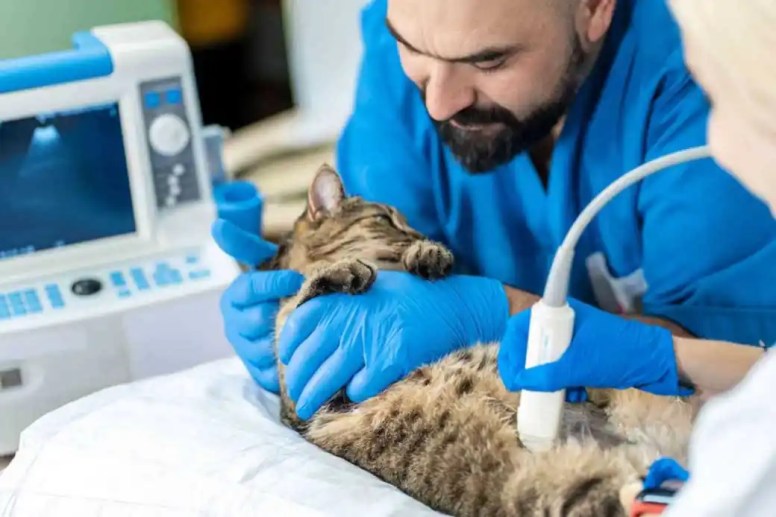Exactly How an Emergency Vet Can Conserve Your Pet's Life in Critical Circumstances
Exactly How an Emergency Vet Can Conserve Your Pet's Life in Critical Circumstances
Blog Article
Inoculation Guidelines From Your Relied On Veterinarian
Inoculation guidelines offered by your trusted veterinarian play a crucial role in guarding your pet dog's health and well-being. Furthermore, addressing usual misconceptions bordering vaccinations can even more enhance family pet owners' confidence in these precautionary measures.

Relevance of Vaccinations
Inoculations play an essential duty in safeguarding family pets against a variety of preventable conditions. By promoting the immune system to recognize and deal with details virus, injections considerably reduce the occurrence of infectious conditions that can impact a pet dog's wellness and long life. Not only do vaccinations secure private animals, however they likewise add to herd immunity, thereby reducing the total prevalence of diseases in the animal population.
Prompt inoculations aid to reduce the spread of illness such as rabies, parvovirus, and distemper, which can have serious consequences for both human beings and family pets. Inoculations are frequently a requirement for boarding facilities, grooming solutions, and pet dog parks, making them vital for those that want to mingle their pet dogs.

Core Injections for Pet Dogs
While the specific inoculation requirements of animals can differ based upon specific elements, core vaccines are universally recommended to protect against the most usual and major diseases (Pet Vaccinations). Core vaccinations are those deemed crucial for all pet dogs, no matter their way of life or geographic place, as they protect against potentially fatal and extremely infectious ailments
For pet dogs, the core vaccines include those for canine distemper, parvovirus, adenovirus (liver disease), and rabies. Canine distemper is a viral illness that affects the respiratory system, intestinal, and nerves. Parvovirus is understood for causing serious stomach health problem, specifically in young puppies. Adenovirus can result in liver condition, while rabies is a zoonotic disease that poses a danger to both pet dogs and people.
In cats, core vaccinations incorporate feline panleukopenia, feline calicivirus, feline herpesvirus (rhinotracheitis), and rabies. Feline panleukopenia is a highly contagious viral condition that impacts the body immune system and intestinal tracts. Calicivirus and herpesvirus are significant factors to upper respiratory infections in cats, while rabies remains an essential problem for public health.
Consult with your veterinarian to ensure your family pets receive their core vaccinations on routine.
Non-Core Vaccines Explained
Non-core injections are tailored to resolve specific risks associated with an animal's way of life, exposure, and atmosphere to certain conditions. Unlike core vaccinations, which are globally advised for all pet dogs, non-core vaccinations are considered based upon individual scenarios. These vaccinations are specifically click resources crucial for animals that may experience distinct virus because of their geographical place, travel routines, or activities.
Examples of non-core injections include those for Bordetella bronchiseptica, which is connected to kennel cough, and Lyme disease, brought on by ticks. Pet dogs that often engage with various other pets, such as those in boarding facilities, canine parks, or grooming atmospheres, may gain from Bordetella inoculation. If you live in an area where Lyme illness is widespread, immunizing against this condition can be a sensible choice for outdoor-loving pets.
Various other non-core vaccines may consist of those for leptospirosis, canine influenza, and feline leukemia, depending upon the particular danger elements existing. It is crucial to have a thorough conversation with your veterinarian concerning your animal's way of living and the potential need for these vaccinations, guaranteeing a tailored inoculation technique that finest protects your fuzzy close friend.
Vaccination Arrange Summary

As pet dogs develop, it is essential to adhere to the suggested booster inoculations. Veterinarian Enterprise. For adult pets, core injections are usually offered each to 3 years, depending on the details injection and neighborhood laws. Non-core vaccinations may be suggested based upon lifestyle elements and local illness prevalence, demanding a tailored approach
Routine vet examinations are critical for updating inoculation schedules. Your vet can provide advice on one of the most appropriate booster shots for your pet, factoring in age, wellness status, and ecological browse this site risks. By remaining proactive and educated, pet dog owners can guarantee their fuzzy friends get reliable and timely vaccinations, thereby securing their wellness and health throughout their lives.
Usual Myths Regarding Vaccines
Misconceptions concerning pet inoculations can result in complication and unwillingness amongst animal proprietors regarding the immunization procedure. One common myth is that injections are unneeded for interior pets. While it holds true that interior animals deal with reduced risks, they are not entirely unsusceptible to conditions, as pathogens can be introduced with numerous ways, including human apparel and various other pets.
One more mistaken belief is that injections can trigger the diseases they aim to stop. In truth, the majority of vaccines have inactivated or attenuated microorganisms, which can not trigger condition in healthy animals. Some pet owners additionally believe that their pet dogs ought to not be vaccinated if they are currently healthy; nevertheless, inoculations are a positive procedure that aids stop the beginning of illness.
Additionally, lots of family pet owners fear that injections will result in lasting health issues. While negative effects can take place, they are typically moderate and momentary. The benefits of vaccination-- safeguarding animals from potentially deadly diseases-- far exceed the risks. Comprehending these usual myths is vital for liable family pet ownership and ensuring the wellness and safety and security of your hairy friends. Always consult your veterinarian for exact info tailored to your pet's details demands.
Final Thought
In recap, adherence to vaccination guidelines is important for making certain the wellness and longevity of family pets. Dispelling usual myths bordering inoculations better reinforces the relevance of informed decision-making in pet dog care.
Not only do inoculations shield specific animals, but they additionally add to herd resistance, thereby reducing the total frequency of diseases in the pet population.
Mistaken beliefs concerning animal inoculations can lead to complication and hesitation among animal owners concerning the immunization process. While it's true that indoor animals encounter reduced threats, they are not entirely check my reference immune to diseases, as microorganisms can be introduced with numerous ways, consisting of human clothing and other family pets.
Some family pet proprietors additionally believe that their family pets ought to not be vaccinated if they are currently healthy; nevertheless, vaccinations are a proactive step that assists stop the start of disease.
The benefits of inoculation-- safeguarding pets from potentially life-threatening conditions-- much surpass the risks.
Report this page